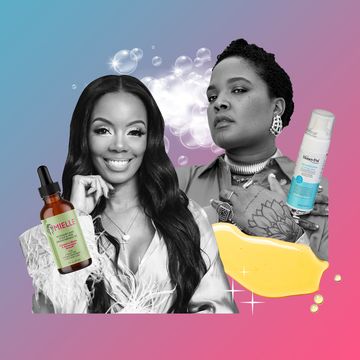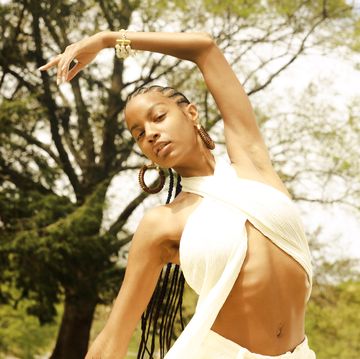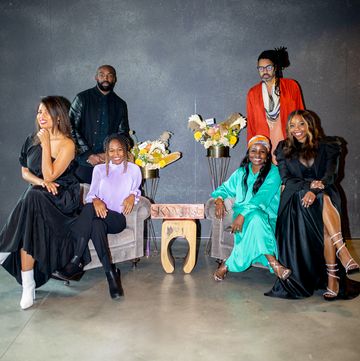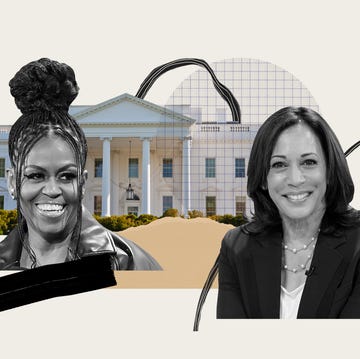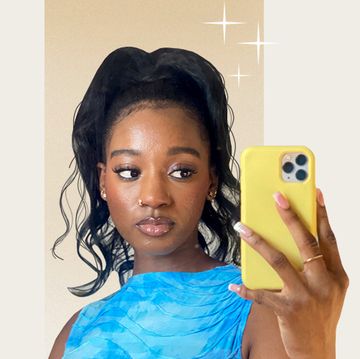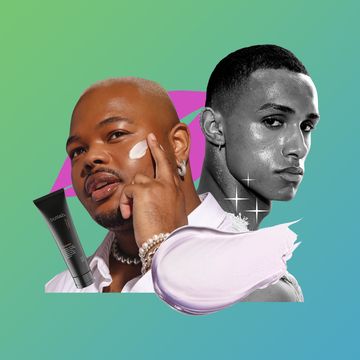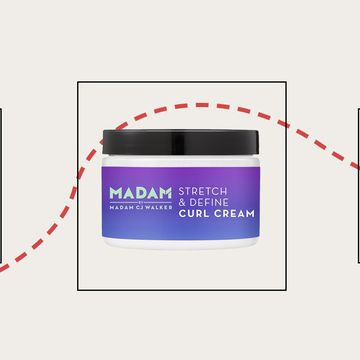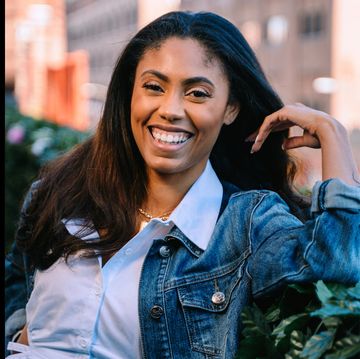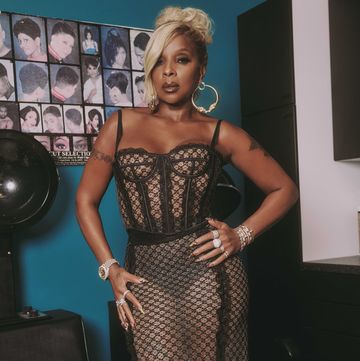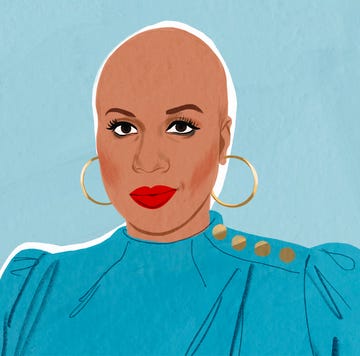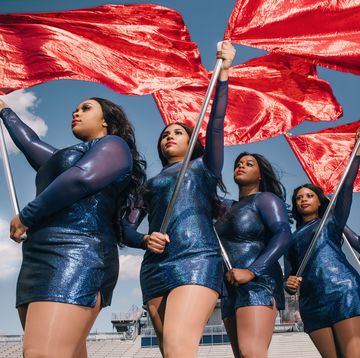Fashion Fair walked so Fenty Beauty could run—and now the legendary cosmetics company is back in the race.
The iconic brand, which gave Black beauty a face in the industry starting in 1973, is an institution within the Black community. Its founder Eunice Johnson was ahead of her time, pioneering and showcasing the beauty and style of Black people and our culture through media, the runway, and makeup. Johnson was also the founder of the iconic Ebony and Jet magazines, bringing Black life and beauty to Black people on a global level. Through her Fashion Fair Show, which launched in 1958 and showcased haute couture on Black models, she saw that their makeup needs were not being met with existing product offerings. Johnson knew that this had to extend to the everyday woman. To prevent Black women from the burden of mixing foundation shades to create their own, looking ashy from makeup that didn’t complement our various undertones, and to provide more options for us by us, Johnson created the Fashion Fair makeup collection.
And while some may think Black beauty is having “a moment" now, Fashion Fair and its ilk are proof that Black beauty has always been here, even if its products are just now beginning to appear on the shelves of mainstream retailers. Fashion Fair served as a necessity for the Black community (and proof of concept for everyone else). Now, brands are beginning to expand their shade range to represent the diversity we see in our everyday lives, while capitalizing on the $1.3 trillion dollar spending power of the Black community. While the pillars of change in the beauty industry are expanding for equality, we must be reminded of the foundations—both literal and figurative—upon which Black beauty was built.
Johnson and the legacy of her Black beauty empire are explored in the new HBO Max documentary Beauty of Blackness, directed by Tiffany Johnson (Dear White People, Black Monday, Twenties) and first-time director Kiana Moore, head of Vox Media’s Epic Digital and VP of content production. The two collaborated to share the story of the Fashion Fair Cosmetics journey from its inception, to its fall, to its rise again under the helm of Desirée Rogers and Cheryl Mayberry McKissack.
“It’s time to open up the beauty industry in a way to get more Black-owned brands," Johnson told ELLE.com "I think now it’s too late. It should have been a while ago."
Moore points out a sobering truth: “We have noticed that a lot of our history has been rewritten or changed or excluded and minimized our impact.” The Beauty of Blackness brings the history and impact of Fashion Fair to the forefront and follows the journey of Rogers and McKissack to the relaunch day of Fashion Fair. ELLE.com caught up with Johnson, Moore, Rogers, and McKissack to delve deeper into the Beauty of Blackness.
What does Black beauty look like to each of you?
Cheryl Mayberry McKissack: Black beauty is now. It's what's happening right now. Black beauty for many women of color especially, means an opportunity for them to be seen, for them to be heard, for them to be able to stand in whatever their truth is, and be able to express that.
Desirée Rogers: [Black beauty] is not just one thing. It’s diverse. I think so many times we get grouped in these little corners. You know, it's this or it's that. If we look at Black people, we come in all shades, all colors, all dimensions—it is not just one thing. People think, ‘Oh, beauty is beauty is beauty.’ We know it's a very complicated topic and a very emotional topic in our community; because for so many years, we were told we were not beautiful, that our skin tone was not wonderful and glamorous and spectacular. We’ve been held to a standard that was impossible for most of us. Although I could dye my hair blonde today if I wanted to, I could put in blue contact lenses if I wanted to…but it’s a fake image of what Black Americans have been shown over the years is beautiful. We had this opportunity in the 70s where you know, Black power and James Brown and women wearing different hairstyles, etc. We’re going kind of full circle right, coming back to kind of that same thing.
And so this whole idea of creating products and having a history of successful products, that was all really wrapped around the beauty of Black women, the glamour of Black women, the fashion of Black women—no one was running away from color.
Tiffany Johnson: I second everything Desirée and Cheryl just said.
Kiana Moore: Same!
How are Black women today creating their own standards of Black beauty?
Cheryl Mayberry McKissack: I see it in the way that they're speaking about it. I see it in the initiatives that are going on right now. Desirée and I are going to be supporting the 15% Pledge Initiative in New York this upcoming weekend. This is all about just being confident enough to speak out and say, 'Hey, look, you know, you guys are saying you want to be more diverse. How about opening up some of those shelves so that you know, people of color who own these businesses have a chance to put their wares up there and show what they can do.'
Desirée Rogers: Right. Since you know so much about Blacks, why is that stuff way in the back???
CMM: I mean, so if we're seeing it all the time, what's more important or equally as important is that people are listening.
Kiana Moore: There was a time at which our rules were so constricted and we couldn't show up as our authentic selves in those spaces. I know exactly what Cheryl was saying about our hair because I had that experience where I was like, “Oh my God, if my hair wasn’t permed and straight, Lord knows I would lose the job immediately.” We weren't allowed to just…in public spaces, be proud of ourselves sometimes, and show ourselves in all of our glorious beauty. We were stifled and it seems like now we are getting to the point where we’re like, 'We just got shine as bright as we are, and you’re gonna have to take it and if you can't deal with the sunlight and the shine, then put on sunglasses or go somewhere else.' And it's a beautiful thing when you can just shine your light so bright that everyone sees it.
CMM: You know, we say that in fact, we know we think that we wouldn't have been accepted. I’m going to speak for myself—I don't think I had the confidence to put myself out there to even see if I would be accepted. I might have been wrong!
DR: You do work yourself up into a frenzy. But that is what they've done to us.
We know what Fashion Fair meant to our parents or grandparents. What do you want it to mean to Gen Z and future generations?
Desirée Rogers: The same thing except now you have all this love behind you to kind of help you even think about it. Right? It may be new, but when you do a little research, you'll see quickly that it really is you, it is your community. It is invented for you by you, you know, all of these things that people preach or whatever. Well, this (Fashion Fair) was way ahead of when this was convenient, or that this was the thing to do, or the diversity initiatives. This was ’73! I want them to feel prideful. Every time I go to the counter, I feel pride. I'm like, 'Wow, look at what Black people did. Not just right now, but 50 plus years ago!'
CMM: Right.
DR: This was not new for Fashion Fair. It set the tone.
CMM: We want it to be more than just cosmetics. That's just part of what we do. When I think about Mrs. Johnson, what she was trying to do, she was really trying to solve a problem that she had out there because nobody else was solving for that. And so, yes, there are a lot of companies out there that make products for women of color who are darker skin tones. And so we're not going to be the only ones out there so our situation is a little bit different. So what about instead of being the only one, we try to open the door bigger and wider for other young women to come in.
I just had a wonderful experience. About a couple of weeks ago, our head of sales reached out to a young woman who is trying to start a makeup line. There's plenty of room for all of us. And if you're out there by yourself and it's your first time and you don't have some seasoning that Desirée and I have...it's a lonely world. It's the ability to reach out to her and say, 'Hey, you're not by yourself. And by the way, we can help you and we're not afraid of you.' If you look at the numbers, the numbers don't lie. Our numbers are minuscule compared to the women of color out there that are buying these products nine times more than our white counterparts. I mean, we got a lot of room to grow here.
Do we have a modern-day Eunice Johnson?
Cheryl Mayberry McKissack: I think the mission now is really for there to be so many Eunice Johnson's. Okay, maybe not at her level for her time, because she was really unique and a pioneer and it was a different time. But I think all of us—we're not going to maybe get the opportunity to do something that's never been done before. But we can do it in a different way.
Kiana Moore: I disagree. Each of us are our own, so Eunice Johnson was Eunice Johnson. That is no new Eunice Johnson of our time. There are people who hold those traits for us, but I think, give her her space. She is who she is. Make the room for her, don't forget her, and then let someone else have their name. Instead of saying, ‘Oh, you're Eunice Johnson.’ Let someone be their individual self.
CMM: You hit the nail on the head. But I do think her spirit still lives in all of us, because there's still work to do.
Tiffany Johnson: Absolutely.
KM: Yes.
Desirée Rogers: Nobody showed up like that woman showed up with 20 pieces of Louis Vuitton luggage!
CMM: Back in the day!
KM: I can’t even imagine…
DM: I mean, look I agree with all the spirit and all that stuff but the glamour??? Who is doing that?
KM: We sit in rooms now and we may be the only face but some are friendly and some aren't. I just imagine her in those places and none of the faces are friendly. Not one.
DM: She didn’t care.
KM: That's right. The courage and the fortitude to just do it is amazing.
What do you ladies think is the current state of Black beauty?
Tiffany Johnson: It's here. It's loud. It's unapologetic. It's bold and it's showcasing all of us. We have so much more to go but I just see it. I see it happening. And I get excited for where it can go. It’s really beautiful and inspiring to see. It matters so much.
Kiana Moore: I have to echo you Tiffany. It’s in a place where it comes full circle, and we love who we are.
TJ: Yesss.
KM: We actually look in the mirror and say, ‘You know what I am beautiful. I am good.' And you feel it in your soul. And I don't—or in my life, I won't put my feelings on other people, but in my life I hadn't felt like that in a very long time. And that's because there are other people who took that leap recently when they were just like, 'You know what, I'm going to love who I am and it is what it is and you just gonna have to deal with it.’ And it goes back to that light—their light made me shine my light. So I feel like our lights all together have allowed us to be like, ‘We are good.’ It is a place at which we say, ‘We are really beautiful.’ And you can’t take that away, no matter how much you try.
Danielle James is the Digital Beauty Director of ELLE.com. Previously, she was the Fashion and Beauty Director of HelloBeautiful.com and MadameNoire.com. She’s bylined for The Cut, InStyle, Allure, Business of Fashion, Nylon, Essence, Good Housekeeping, The Grio, and Huffington Post. Danielle enjoys sailing, thrifting, Japanese whiskey, Naomi Campbell’s runway walk, and Rihanna in the comment section.











